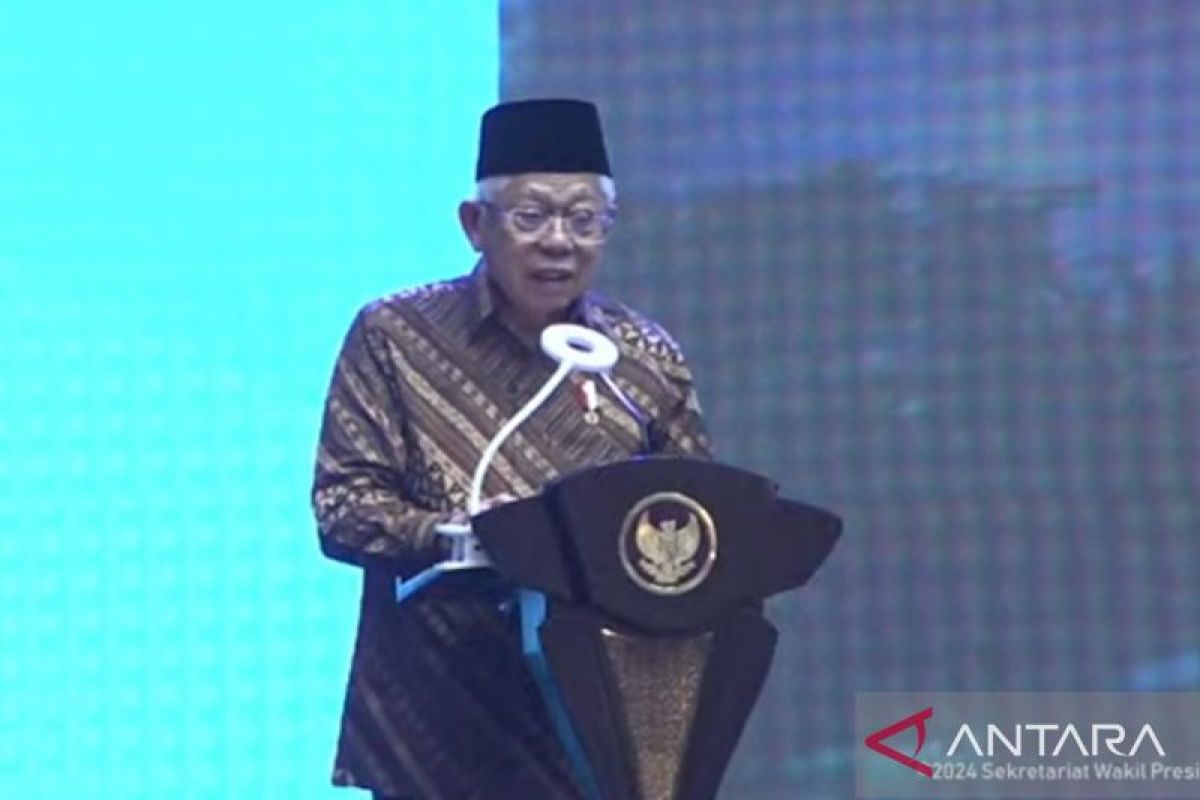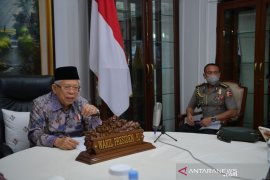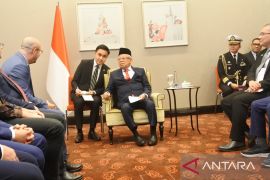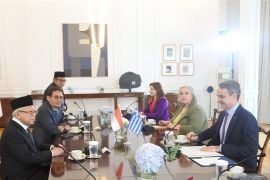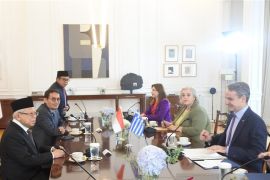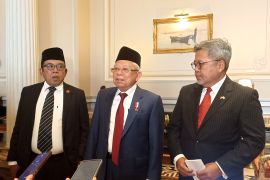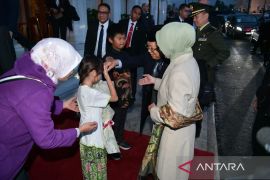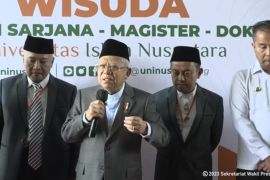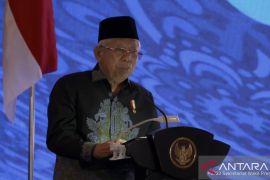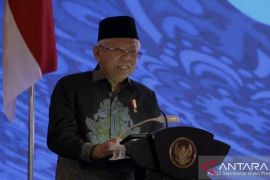Vice President Ma'ruf Amin, on Thursday, highlighted that climate change had been presenting challenges to the Indonesian government's efforts in developing the national aquaculture sub-sector.
During the inauguration of the Asian-Pacific Aquaculture 2024 event in Surabaya, East Java, Amin underlined the need to address some critical issues to get the most out of the aquaculture sub-sector that can contribute 16 percent to the overall economic value of Indonesia's maritime sector.
"The government has been striving to modernize aquaculture, making the sub-sector more independent and sustainable. However, we are facing obstacles in the form of climate change, ecosystem damage, environmental degradation, and diseases that threaten biodiversity," he remarked.
To that effect, the vice president pushed for implementing technology and innovation, strengthening regulations and policies, and establishing multi-sector collaboration in the hopes of actualizing inclusive and sustainable maritime economic development.
He then pointed to the need for quality food that is expected to increase, as the world's population is projected to reach 8.6 billion in 2030.
Related news: Trade Ministry develops strategies to tackle climate change
In this regard, Amin observed that the Asia-Pacific region wields the potential of successfully adjusting to the mounting need for food and contributing five percent to the global economy owing to its abundance of marine resources.
"This places the Asia-Pacific as a strategic region that serves not only as a market but also a global epicenter of fish production," he pointed out.
Amin opined that Indonesia, the Philippines, Japan, and Micronesia can promote the blue economy by making the most of their wealth of marine biodiversity.
"In order to develop the blue economy through the formulation of comprehensive and integrated policies, countries in this region need to ensure collaboration between governments, business actors, investors, and academicians," he stated.
He further remarked that Indonesia had been pursuing the adoption of the blue economy, shooting up the maritime sector's contribution to the national economy and devising innovative fishery and marine tourism programs to emerge as the world's maritime fulcrum.
The Asian-Pacific Aquaculture 2024 stands as Indonesia's largest international aquaculture exhibition and conference that brings together industry players and investors.
Related news: Ministry develops area-based modeling to boost aquaculture exports
During the inauguration of the Asian-Pacific Aquaculture 2024 event in Surabaya, East Java, Amin underlined the need to address some critical issues to get the most out of the aquaculture sub-sector that can contribute 16 percent to the overall economic value of Indonesia's maritime sector.
"The government has been striving to modernize aquaculture, making the sub-sector more independent and sustainable. However, we are facing obstacles in the form of climate change, ecosystem damage, environmental degradation, and diseases that threaten biodiversity," he remarked.
To that effect, the vice president pushed for implementing technology and innovation, strengthening regulations and policies, and establishing multi-sector collaboration in the hopes of actualizing inclusive and sustainable maritime economic development.
He then pointed to the need for quality food that is expected to increase, as the world's population is projected to reach 8.6 billion in 2030.
Related news: Trade Ministry develops strategies to tackle climate change
In this regard, Amin observed that the Asia-Pacific region wields the potential of successfully adjusting to the mounting need for food and contributing five percent to the global economy owing to its abundance of marine resources.
"This places the Asia-Pacific as a strategic region that serves not only as a market but also a global epicenter of fish production," he pointed out.
Amin opined that Indonesia, the Philippines, Japan, and Micronesia can promote the blue economy by making the most of their wealth of marine biodiversity.
"In order to develop the blue economy through the formulation of comprehensive and integrated policies, countries in this region need to ensure collaboration between governments, business actors, investors, and academicians," he stated.
He further remarked that Indonesia had been pursuing the adoption of the blue economy, shooting up the maritime sector's contribution to the national economy and devising innovative fishery and marine tourism programs to emerge as the world's maritime fulcrum.
The Asian-Pacific Aquaculture 2024 stands as Indonesia's largest international aquaculture exhibition and conference that brings together industry players and investors.
Related news: Ministry develops area-based modeling to boost aquaculture exports
Translator: Mentari D, Tegar Nurfitra
Editor: Yuni Arisandy Sinaga
Copyright © ANTARA 2024
